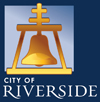The Sewer Division educates the community about the impacts of disposing pollutants such as fats, oils, grease, and pharmaceuticals into the sewer system. The reduction of these pollutants into the sewer system results in lower treatment costs at the Water Quality Control Plant. These cost reductions benefit all sewer users.
Public Education Resources
Proper Grease Disposal
Fats, oils, and greases aren’t just bad for your arteries and waistline; they are bad for the sewer too! Sewer overflows and backups can cause health hazards, damage home interiors, and threaten the environment. An increasingly common cause of overflow in sewer pipes is blockages caused by grease. Grease gets into the sewer from household drains as well as poorly maintained grease interceptors in restaurants and other businesses.
Most of us know grease as a byproduct of cooking. Grease is found in things such as meats, sauces, gravies, salad dressings, deep-fried Danishes, dairy products, soups, chili, pastas, pastries, butter, and margarine.
Follow these three easy steps for proper grease disposal:
- Pour cooled oils and grease into an old glass jar or can and dispose of it in the trash.
- Remove excess grease left on cookware with a paper towel and dispose of it in the trash. Also scrape leftover food scraps from dishes and cookware into the trash.
- Tell your family and friends about protecting their home and preserving their environment through the proper disposal of fats, oils, and grease.
NEVER pour grease down the drain, collecting your grease in a container is the best thing to do.
Proper Pharmaceutical Disposal
Pharmaceuticals are prescribed or over-the-counter drugs and medications used for the medical treatment of people and animals.
In the past, people have been instructed to flush medication down the toilet to prevent harm to children and animals. Flushing is no longer the recommended disposal method; it can have adverse effects on our environment.
Trashing medicine is a better option than flushing. However, precautions must be taken to ensure the safety of children and animals.
Can't find what you are looking for? Let us help you. Please call 951-351-6140.

